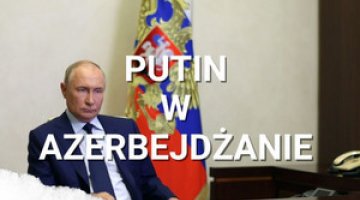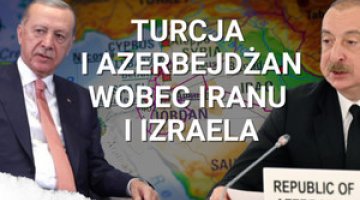Blockade of the Lachin corridor. Nagorno-Karabakh introduces ration coupons
On 17 January, the authorities of the unrecognised Nagorno-Karabakh Republic began issuing ration coupons for certain food products, including rice, porridge and sugar. The rationing is related to growing difficulties in supplying the parastate amid the blockade (ongoing since 12 December) of the only road linking Nagorno-Karabakh (its Armenian-controlled areas) with Armenia and the outside world. The blockade was set up by Azerbaijani ‘environmental activists’ who were demanding permission to monitor Karabakh’s gold, and copper & molybdenum deposits, which have been targeted for exploitation. According to the agreements ending the Second Karabakh War (in autumn 2020), this road is under the control of Russian peacekeeping forces (who have taken no action against the blockade); Azerbaijan has also guaranteed the safety of traffic on the route. Due to the blockade in Nagorno-Karabakh, many goods began to run short as early as December – only medical transport is allowed through – and the Armenian side is beginning to talk about a humanitarian crisis. The difficult situation is exacerbated by Azerbaijan’s periodic cuts to the parastate’s gas supplies, which are used to heat homes and institutions; kindergartens, among others, are now being closed there. Representatives of Western countries, including US State Department spokesman Ned Price, have repeatedly called for the road to be re-opened.
Commentary
- The blockade of the Lachin corridor has not come about spontaneously. Under the conditions set by Azerbaijan, it could not have taken place without the permission or the support of the government (as the areas in question cannot be entered without passes). It seems that Baku’s goal is to force Yerevan to open the so-called Zangezur corridor, which links Azerbaijan’s core territory with the Azerbaijani exclave of Nakhichevan, and runs on to Turkey. Armenia has in principle agreed to the use this route, and its opening was also included in the 2020 document ending the war. However, Yerevan is opposed to the corridor running along the border with Iran (so as not to cut off access to that country) and has ruled out its extraterritoriality. The blockade, which is a ‘hybrid’ action, should be considered an intermediate step between diplomatic methods (months of negotiations on the Nakhichevan road have so far failed to produce any binding agreements) and military measures. President Ilham Aliyev said on 10 January that the Zangezur corridor would be launched “whether Armenia wants it or not”. That could be interpreted as an announcement that the corridor would be ‘broken through’ by force; in September 2022 Azerbaijan attacked targets located on Armenian territory.
- In Armenia, the blockade is provoking extreme outrage and contributing to a further rise in anti-Russian sentiments. Prime Minister Nikol Pashinyan already accused the Russian peacekeepers of failing to perform their functions on 22 December, and in early January he declared that he saw no purpose in holding Collective Security Treaty Organisation force exercises on the country’s territory in 2023. Foreign minister Ararat Mirzoyan called on UN Secretary-General António Guterres in a telephone conversation to send a mission to Nagorno-Karabakh to investigate the humanitarian situation on the ground. The call was met with a protest from Moscow: Kremlin spokesman Dmitry Peskov said that any mission could only be sent to Nagorno-Karabakh with the consent of both sides in the conflict, implying a boycott of Yerevan’s proposal. On 8 January, Armenian activists closed the access road to the Russian military base in Gyumri, calling on Russian soldiers to intervene in the blockade, or risk being called an occupying force. The authorities dispersed the protesters (about 100 people were detained by police), but it is highly likely that similar actions will occur in the future. The use of force against demonstrators could lead to anti-government protests.
- The Russian peacekeepers’ reluctance to act shows that Russia is disregarding its commitments to its formal ally Armenia while displaying goodwill toward Azerbaijan. Moscow’s motives for this attitude are not entirely clear. It may stem from the realisation that Armenia is fated to cooperate with Russia in the security sphere, and Yerevan has no instruments of leverage to compel support from the Kremlin. It is also likely that the Russians are interested in forcing Armenians to agree to the route through southern Armenia which Baku is pushing. Indirectly, the Russian passivity may also signal a willingness to respect the interests of Baku’s supporter Turkey, which, although a rival to Russia in the Caucasus, is seen by Moscow as a strategic partner in the context of the war in Ukraine and the sanctions imposed on the Russian economy. In addition, if Moscow stepped forward to defend Armenia, which is demanding Russian intervention, that could – in the face of a determined response from Azerbaijan – lead to a military escalation in the Caucasus; and as significant numbers of Russian forces are already involved in Ukraine, that would be an unfavourable scenario for the Kremlin. Russia’s passive stance towards Armenia is weakening Moscow’s prestige and position as an ally of the states which have joined Russia’s regional integration formats (including Kazakhstan, Kyrgyzstan and Tajikistan), but Moscow must be calculating that these losses in prestige will bring their own benefits.
Map. The Nagorno-Karabakh region, showing the Lachin corridor

Source: author’s research.





